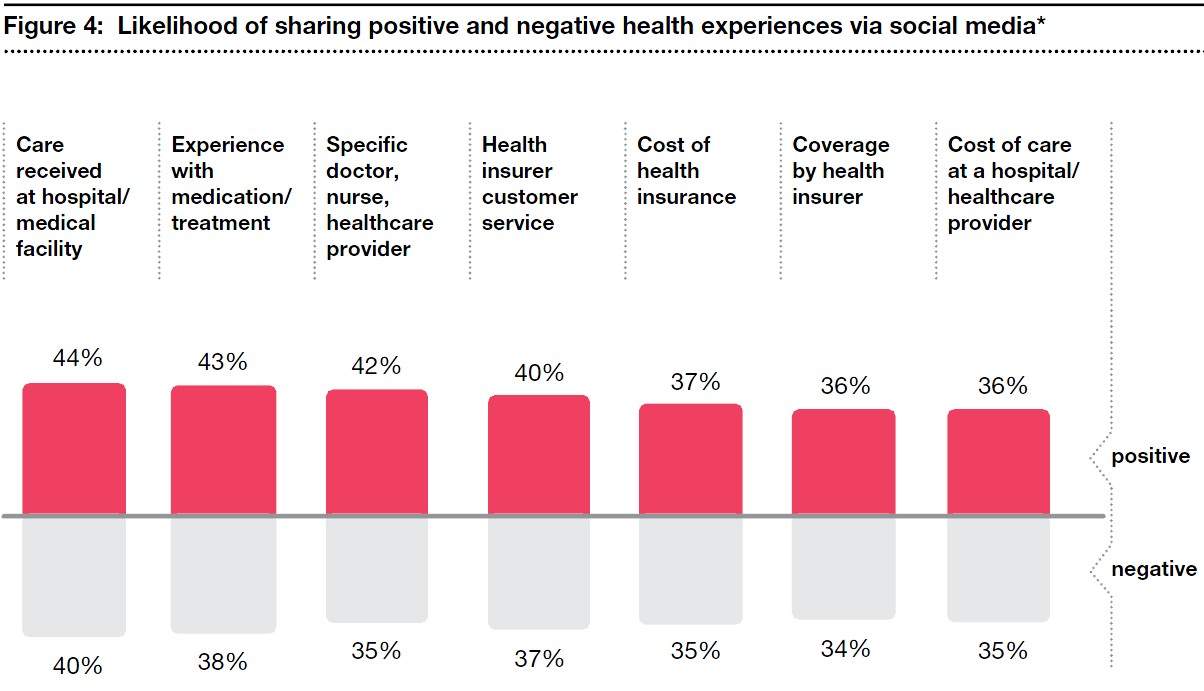Social media within healthcare is sort of like the Wild West. The laws are unclear and intimidating, many are trying to decide how to best navigate the new terrain and the most pioneering individuals have a head start mining for gold.
There are many reasons why social health is developing at such a mind-boggling pace. According to a white paper published by HP, social platforms facilitate patient and provider education, encourage patient health reporting and help patients connect with others who are affected by similar health conditions. Since this brave new world is so expansive and has so many angles worth exploring, this article will be the first in a short series. To begin, let’s explore a few statistics and consider what the data is telling us about the importance of social media adoption for professionals within this space.
According to Mediabistro, over 40% of patients report that information they find through social channels impacts how they deal with their own health.
- Why should you care? Given the number of individuals using social media today, social tools have the potential to help a huge number of individuals improve their health and wellbeing. From a strictly altruistic perspective, health organizations should take notice. However, in a time when population health, chronic disease management and patient satisfaction are so closely tied to reimbursement, profitability and long term viability make their way into the conversation. Can healthcare organizations afford to not be social (I will touch on social media and Meaningful Use Stage 2 requirements in a later article in this series)?
42% of healthcare consumers use social media to obtain information about health providers, treatments and products.
- Why should you care? A growing majority of today’s healthcare consumers are social and mobile savvy. Since they’re turning to social platforms to gather and share health information, doesn’t it make sense for health leaders to be active there as well? Tech-savvy patients classify companies and professionals lacking a strong social media presence as “behind the times,” effectively removing them from their shortlist of places to receive care. This fact is driven home by this infographic by Demi & Cooper Advertising and DC Interactive Group which states, “41% of people said social media would affect their choice of a specific doctor, hospital, or medical facility.”
According to a survey conducted by the Institute of Medicine and PatientsLikeMe, a surprisingly large percentage of individuals are in favor of sharing their health information on social networks despite possible data compromise risks.
- Why should you care? As more and more patients become comfortable with sharing personal health information on social media, the amount of data will boom. This rich source of information could prove extremely beneficial not only for disease tracking and health research purposes, but also for health organizations seeking to identify competitive advantages. Does anyone else see a potential marketing automation tie-in here?
What’s the bottom line? Healthcare organizations that don’t currently have a social and mobile strategy need one ASAP. As Kelly Barnes, U.S. Health Industries Leader at PwC puts it, “Health organizations have an opportunity to use social media as a way to better listen, participate in discussions, and engage with consumers in ways that extend their interaction beyond a clinical encounter.” If you need help with your approach contact StrataBlue today!





